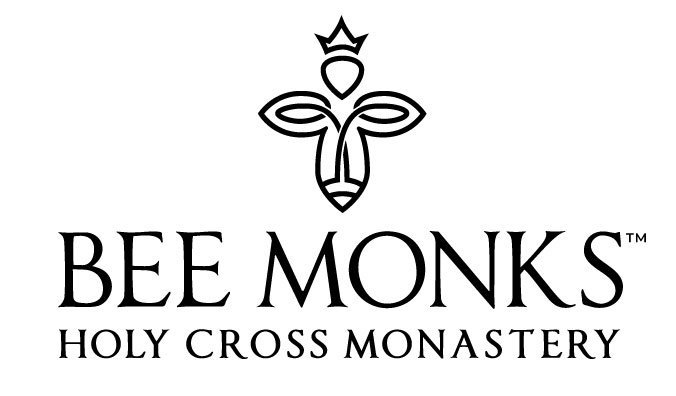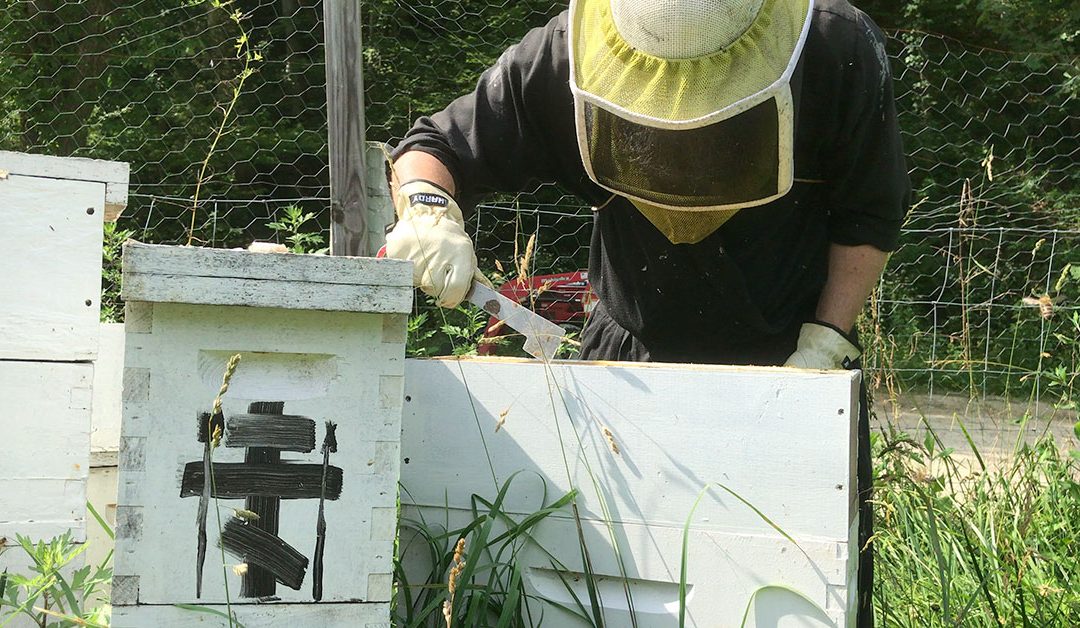“My son, eat thou honey, because it is good; and the honeycomb, which is sweet to thy taste.”
Proverbs 24:13
It is an age-old tradition in monasteries to keep honey bees. This is particularly true in Russia, where accounts of monastic pilgrims down the line of centuries paint a picture of monks working diligently amongst the monastery beehives with the name of Jesus on their lips – a Name “sweeter than honey and the honeycomb” (Psalm 19:10).
Honey bees, in fact, provide a very practical service to our monastery in a number of ways. The most obvious way is through the production of honey. Monastery-produced honey is a tasty addition to the brotherhood’s table and also serves as a source of financial support for the monastery through the sale of honey of different varieties and flavors. Our honey has a unique flavor as it is made from the nectar of the abundant wildflowers and tree blossoms found in the Appalachian Mountains. As different flowers go in and out of bloom on the mountainsides surrounding the monastery over the course of the spring, so the taste of wildflower honey changes in accordance with the type of nectar and pollen available for the bees to gather. Thus the production of monastery honey has an intimate connection with the land and the local weather cycle, and for this reason each batch of honey is truly unique.
Not only does the land and weather cycle affect our honey, but the bee plays a vital role in the local ecosystem itself. Plants and flowers rely on pollination by bees. This pollination of fruits, vegetables, berries and flowering grains greatly affects our monastery garden and local food supply, as insect pollination produces over 30 percent of all food eaten by mankind. Many animals also rely on pollinated plants for their diets. For this reason the bee plays an important role in sustaining the order of nature.
Though we hardly notice the bee as she diligently goes about her work, we would notice a drastic change in our world if it weren’t for bees. In this sense, monks and bees share something in common. Though the monk goes about his day in quiet prayer and steadfast obedience in his work, he is often not noticed by the busy world around him. However, as with the bee, the world would be a much different place without monks, and the Church Fathers even say that it is the prayers of monks that sustain the whole world.
Elder Paisios of Mt. Athos tells a parable of the fly and the bee. The fly knows nothing about where to find beautiful flowers, but only knows about garbage and dirt. If we asked the bee, on the other hand, to show us where garbage is, we can imagine that the bee would answer: “I don’t know. I can only tell you where to find flowers, sweets, honey and sugar.” The bee only knows the good things, explains Elder Paisios, and is ignorant of all evil. Thus the monk is called to be like the bee as he strives to focus solely on the Good–on Christ–so that through the sweetness of prayer, obedience and hard work, the monk can produce something beautiful for the Lord and for the world around us.
Excerpt from the Hermitage of the Holy Cross 25th Anniversary Commemorative Album
Support Our Monastery. Get Your Queens & Nucs From Bee Monks.
Very limited supply of monastery queen honey bees and nucs available. Get yours while supplies last.

